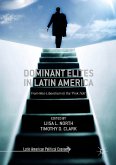Dieser Download kann aus rechtlichen Gründen nur mit Rechnungsadresse in A, B, BG, CY, CZ, D, DK, EW, E, FIN, F, GR, HR, H, IRL, I, LT, L, LR, M, NL, PL, P, R, S, SLO, SK ausgeliefert werden.
"Dale Johnson has provided us with what amounts to a textbook on contemporary international capitalism and how to fight it. The book represents a lifetime of engaged scholarship, and given its macro-level approach, makes a unique contribution to our understanding of world events." (Martin Oppenheimer, New Politics, newpol.org, October, 2017)









